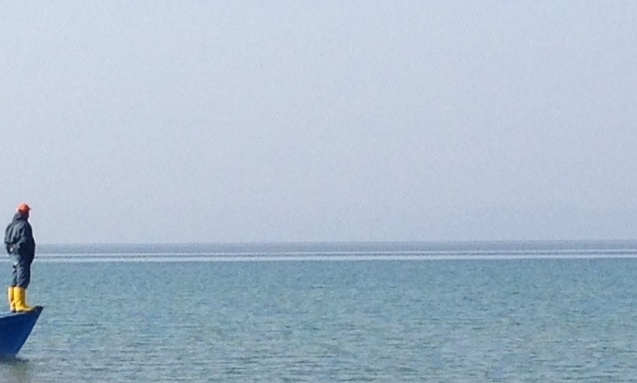First Impression of Hungry for Wine, and Why it Bowled Me Over
We're a few short weeks away from the publication of my first book, Hungry for Wine, and I've been sharing a few chapters with close friends whose opinions I value and who know viscerally how very much this book means to me.
One of those people is my friend Ms Julie who lives up the street. I gave her the Introduction and first chapter, about living a wine life with no regrets, and after reading them she said that she feels like she knows me so much better now. (The Introduction explains quite a lot about how I came to devote so much of my life to writing about wine.) And then she said this:
"I felt like it was something that I could do, too."
Which made me go, Ah...
We talked more about this, and I don't think she meant that writing about wine was something that she could do or was interested in doing per se. I think she meant that she could see herself growing into something, something that's other than what she's doing now, a little at a time each day. (That is also something I explain in the Introduction -- that I wrote my first drafts on wine topics in little snippets of time, in the 20 minutes or so that I could snag here and there while also being a new Mom to twin boys.)
I never intended this to be a reaction to the book, and I was frankly pretty flabbergasted that it was a takeaway for Ms Julie. This happens with writing: you don't know, until you write. You don't know how something is going to work itself out in a piece of writing until you're in the thick of it. And now I see that you also don't know how that writing will affect a reader until you release it into their hands, until they're in the thick of it too.
Hearing Ms Julie's takeaways -- whatever they might be -- was one of the reasons why I shared the chapters with her in the first place. Sure, she belongs to my "target demographic" and I'm curious about the impressions of that particular group. But I also knew that Julie would tell me what she felt in her gut. And if what she felt was connected to the process, even a process where wine itself isn't involved, then I'll be moving toward one of the reactions that I did intend for this book: for readers to see what's universal about wine, and to see some of the ways that wine is interconnected with the private and global interactions of our days.
If a reader gets the resonance of that... it would be Wow.



